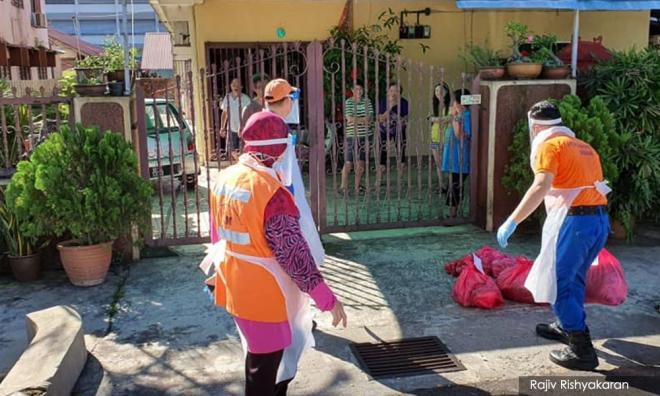
Although movement restrictions were relaxed about a month ago, lives and livelihoods remain affected by the Covid-19 pandemic.
Children continue to languish at home, unable to return to school, while data for Q1 2020 show thousands losing their jobs during the movement control order (MCO) period.
Amid the bleak landscape, resilient Malaysians are coping with a mixture of community outreach and grassroots innovation.
The United Nations Development Programme (UNDP) together with the United Nations Children's Fund (Unicef) have organised a competition asking Malaysians to share photos on how the MCO has brought them closer to the communities around them.
They want to know how people are coping, for example, by joining residents' associations, supporting local businesses through online bazaars, and exchanging food with neighbours.
“The spread of Covid-19 is not just a health crisis. It is a social and economic crisis," said UNDP resident representative for Malaysia, Singapore, and Brunei Darussalam, Niloy Banerjee.
"And most of all, it is a human crisis that could leave deep scars," he added.
Niloy called for families and communities to come together and show the best side of ourselves as human beings via photographs.
“Through this campaign, we hope to be able to tell stories of courage, hope, and empathy. Ultimately, we hope to see the emergence of a resilient and resolute Malaysia,” said he said.
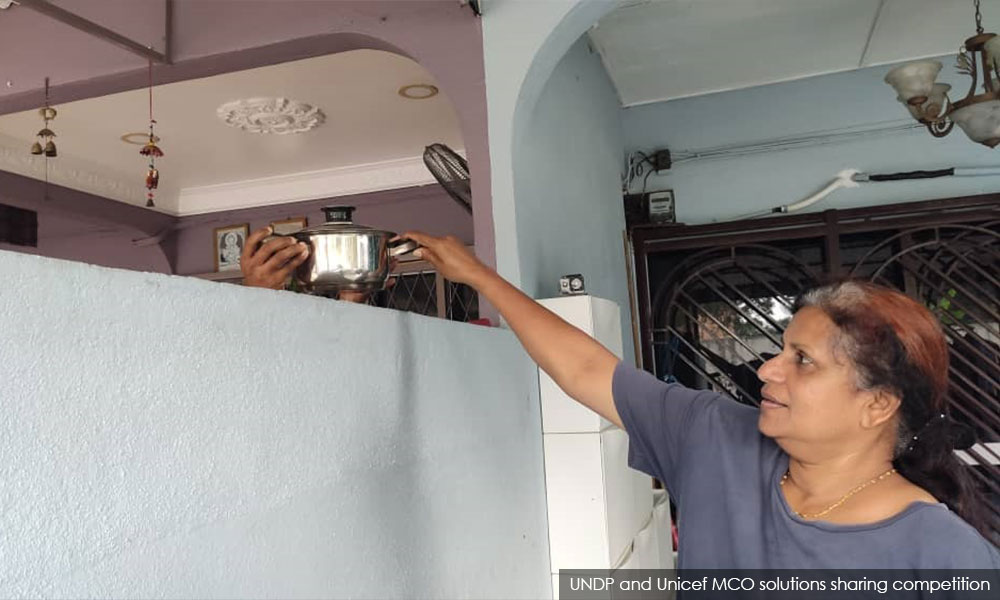
Stories have been shared of how neighbours set up community WhatsApp groups to coordinate grocery purchases, wisely taking turns to go to the store to limit potential exposure to Covid-19.
Some young, tech-savvy respondents used their skills to assist older, less adept neighbours to continue doing activities which were previously done offline.
This includes religious activities usually performed during Ramadan.
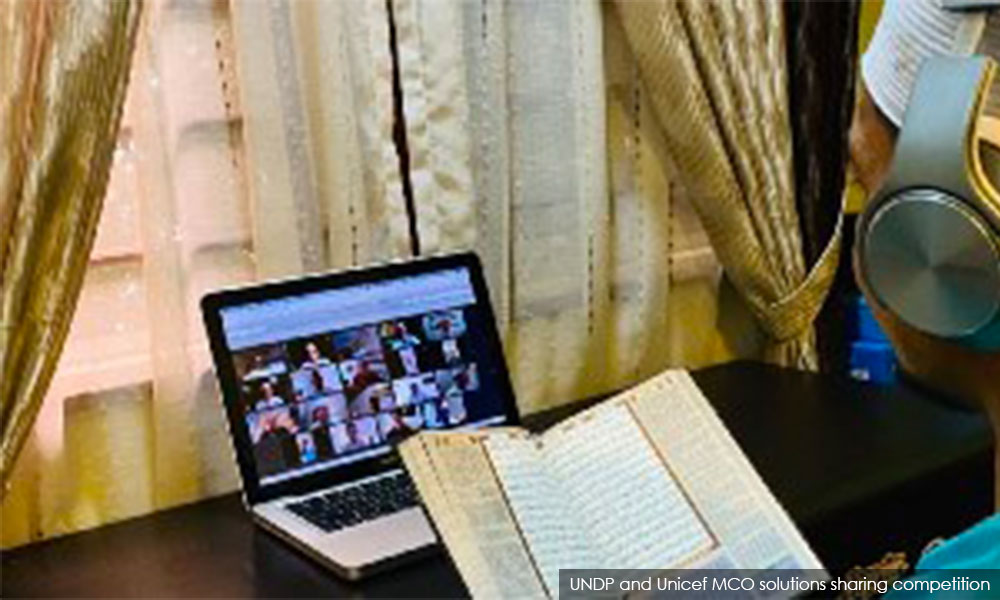
"I managed to help elderly members of my community conduct online tadarus al-Quran (group recitation of the Quran) throughout Ramadan," the respondent said.
"We host these online tadarus sessions for one hour after each of the five daily prayers, and each member reads a page of the Quran.
"Praise God, we are able to complete all 30 chapters of the Quran on the 26th day of Ramadan," the respondent said.
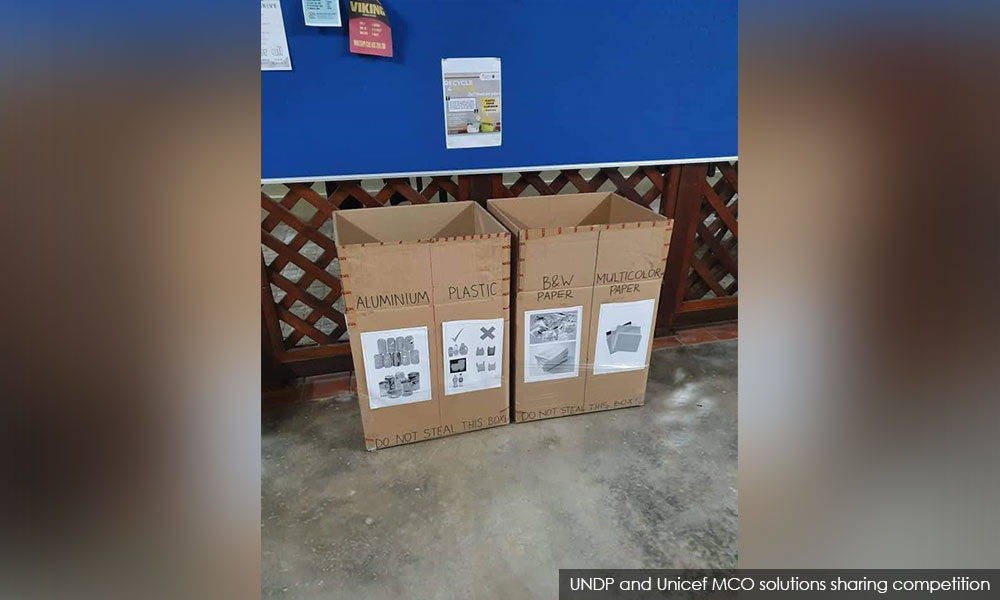
Others put their personal interests to good use. Hobbies such as cooking, gardening, fitness, and drawing were utilised to earn money, with the help of social media.
This artist (below) did fun photoshoots at home with his artwork to keep his spirits up.
One high-schooler, struggling to focus on online classes, found ways to maintain motivation, and started an Instagram account to share "study hacks".
“It is heartening to see examples of communities, even children and refugees, who have stepped up, looking beyond themselves to find innovative solutions to help one another," said Unicef programme specialist for Innovation and Sustainability Issmail Nnafie.
“More than ever we need to keep an eye out for the most vulnerable among us. The pandemic has shown that unless all of us are protected, not one of us is safe,” Issmail added.
Submissions for the photo competition can be made by sending SHARE to +6016 800 1919 via Telegram or WhatsApp. Each winning submission will receive vouchers worth RM100.
The competition is part of UNDP and Unicef's solution-mapping exercise to uncover grassroots issues and innovation during the Covid-19 pandemic.
Among popular submissions were photos and videos of Zumba parties, home aerobics (below), online karaoke, home photoshoots, gratitude journals, and video conferencing with friends - all of which became tools to reduce the stress of being cooped up at home all day.
"We can feel the warmth of friendship although it’s all through the cold screen," one respondent said.
Sharing space with everyone at home can also be a challenge, especially with limited resources.
Families found ways to manage through offline solutions like 'do not disturb' signs or communicating online through the family WhatsApp group. This included taking turns to use the TV and scheduling video game slots.
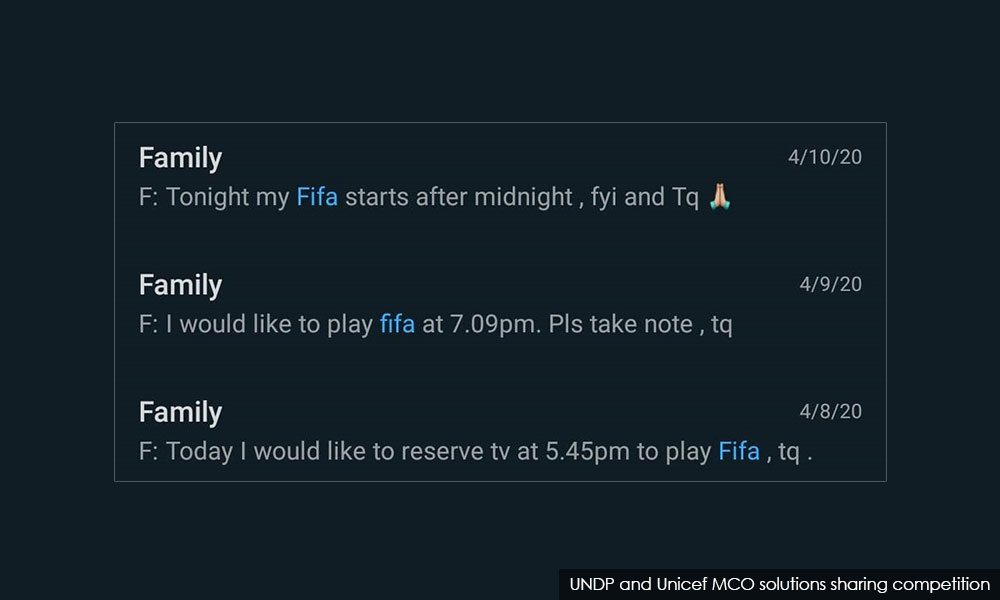
Several festivities were celebrated under MCO, including Mother's Day. For one family, this meant researching recipes online to put up a feast for their queen.
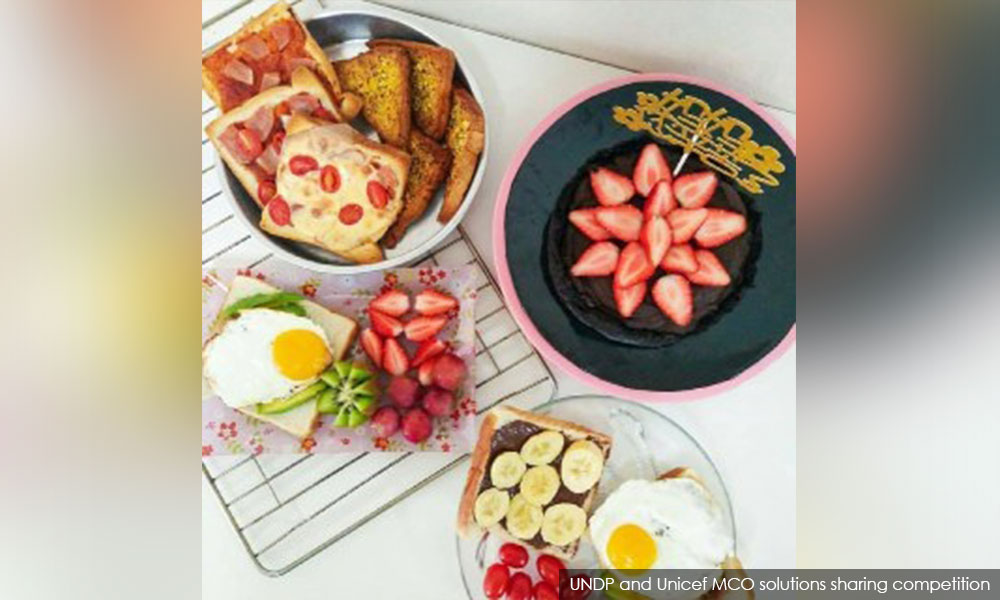
The unexpected circumstances also provided time to reconnect with loved ones at home.
For some parents, it is time to impart important lessons like the value of gratitude.
“My nine-year-old wrote down everything she is grateful for during the MCO. I put them up on the wall as part of her gratitude journal,” one mother said.
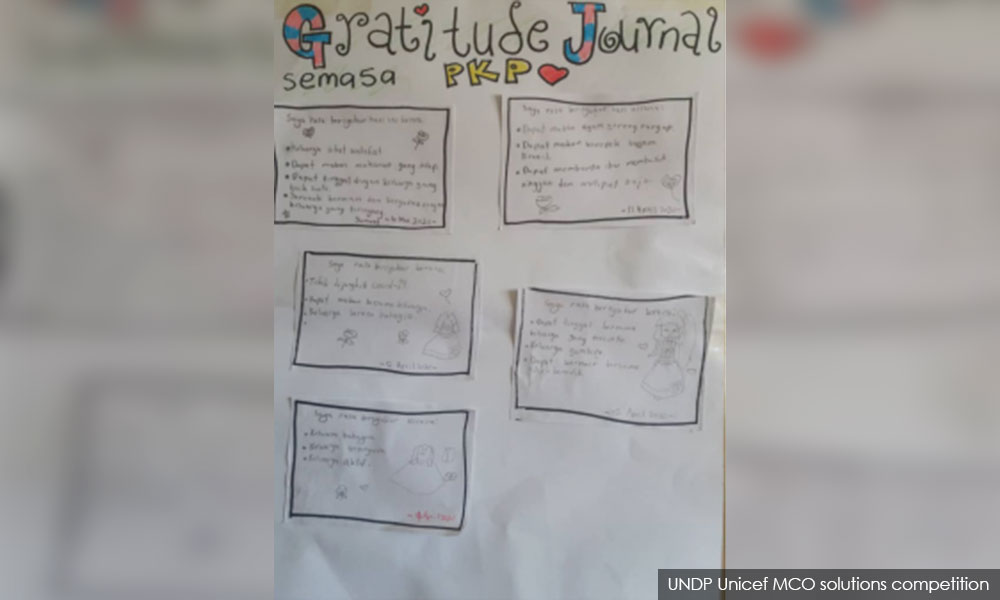
For others, it was an opportunity to build connections with family members, like this pair of siblings (below) born 12 years apart.
“These photos show my activities with my little brother in the late afternoons during the MCO. These activities don’t only help us maintain physical fitness but also protect our mental health," a respondent said.
“Through sports, we have become closer even though the age gap between us is large. It has helped me improve my relationship with my brother,” they said. - Mkini


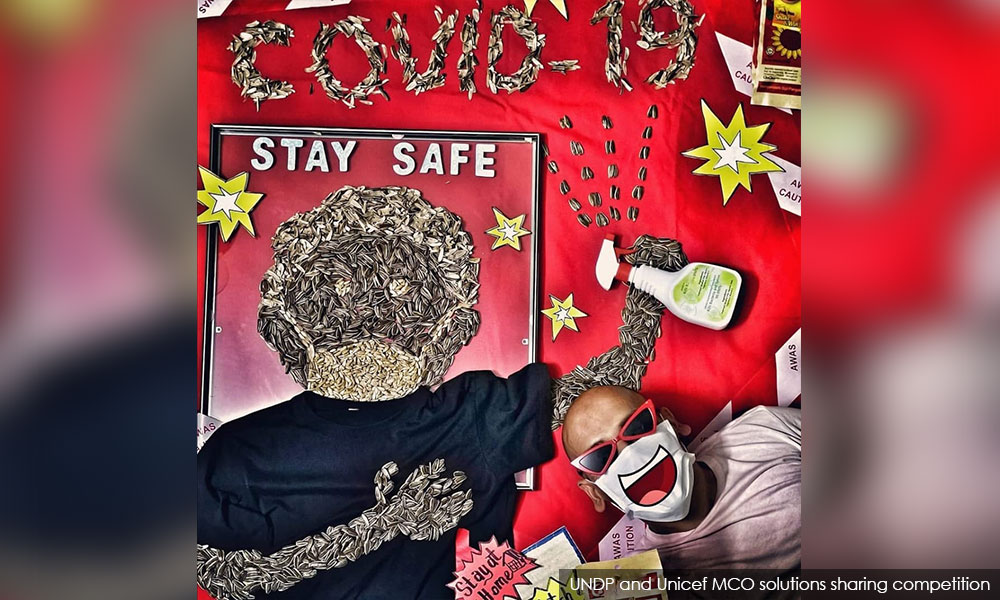
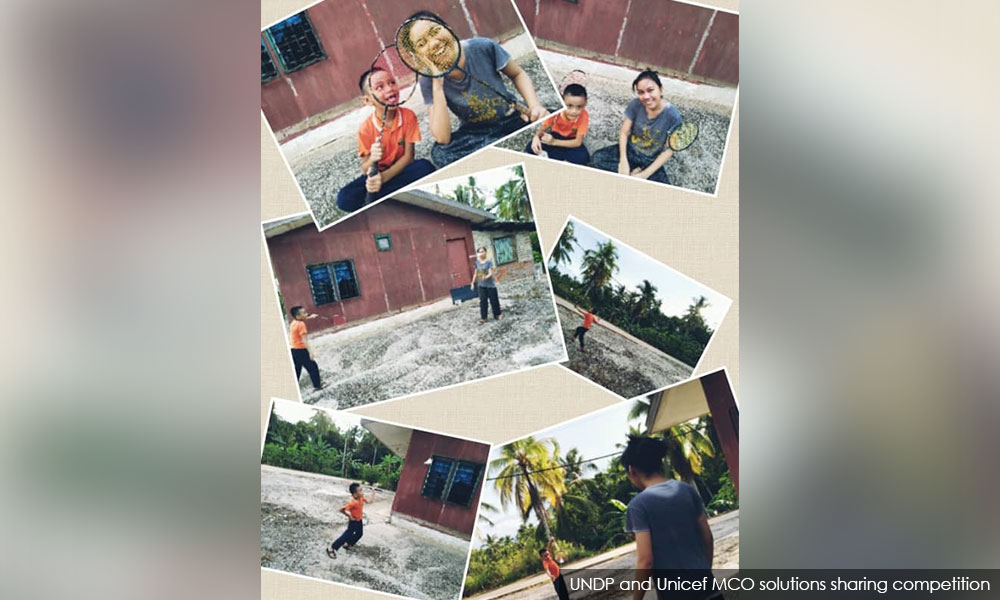
No comments:
Post a Comment
Note: Only a member of this blog may post a comment.